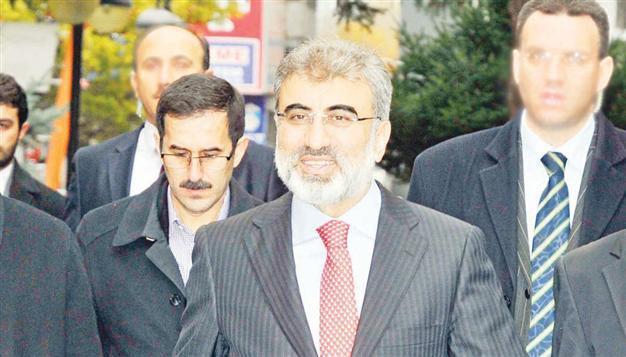Two nations lag behind in race for Turkish nuclear
KAYSERİ

Energy Minister Yıldız says Turkey may find suppliers to replace Iranian oil. AA photo
Two out of the four bidders for Turkey’s second planned nuclear plant have taken steps forward in the process, Energy Minister Taner Yıldız said yesterday, while reflecting on the approaching deadline for the final selection.“Some countries are lagging behind in the talks. So far two countries have come forward,” Yıldız said, while talking to reporters on the sidelines of his meetings in the Central Anatolian province of Kayseri yesterday.
However, he did not elaborate further on four shortlisted bidders: Canada, China, Japan and South Korea.
“When we sign the deal, you will see which country it is,” daily Hürriyet quoted him as saying yesterday on its online site.
Turkey is currently building its very first nuclear power plant on the southern province of Mersin, with the assistance of Russians.
The ongoing talks are for a second nuclear plant in the Black Sea province of Sinop.
According to Yıldız, Turkey will replace possible oil supply losses that may arise from an expected decline in energy transfers from Iran with supplies from other countries, including Russia. Turkey’s exemption from a U.S. embargo on buying Iranian oil expires next month.
Four firms get approval for Gazprom gas
Meanwhile, Turkey’s energy regulator EPDK has granted licenses to four Turkish companies to buy Russian gas via the West Line pipeline. According to yesterday’s decision, Akfel Gaz, Bosphorus Gaz Corporation, Kibar Enerji, and Batı Hattı Doğalgaz Ticaret will replace state-run Botaş in buying Gazprom gas. The licenses for the first three firms are for 30 years, while the latter’s is limited to 23 years. Botaş has been trying to withdraw from the annual 6 billion cubic meter gas trade due to a price dispute with the Russian firm since the end of 2011, and the Energy Ministry has stated that this was a move to liberalize the market. “Turkey has always been a significant and stable partner for us,” an official for Gazprom told Reuters.
















